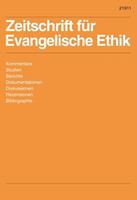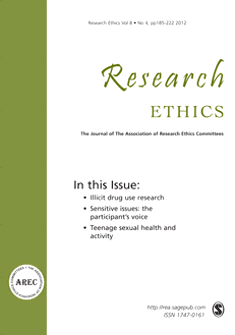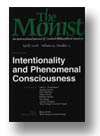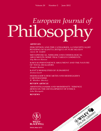
Neuroethics
metrics 2024
Pioneering Discussions on Neuroscience and Ethics
Introduction
Neuroethics is a pioneering journal that delves into the intricate interplay between neuroscience, ethics, and societal implications, published by SPRINGER. With an ISSN of 1874-5490 and an E-ISSN of 1874-5504, it serves as an essential resource for researchers, professionals, and students committed to understanding the ethical ramifications of advancements in neuroscience and neurotechnology. Operating from its base in the Netherlands, this journal is recognized for its scholarly contributions, achieving notable quartile rankings such as Q1 in Philosophy and Q2 in Issues, Ethics and Legal Aspects as of 2023. Despite the absence of open access, the journal remains a vital conduit for fostering interdisciplinary dialogue, supporting the development of ethical frameworks that address urgent contemporary issues in neurology, psychiatry, and health policy. With its effective convergence of research from 2007 to 2024, Neuroethics continues to significantly impact the landscape of ethical research in the field, making it a must-read for anyone invested in the ethical challenges posed by neuroscience.
Metrics 2024
 0.42
0.42 2.60
2.60 2.20
2.20 39
39Metrics History
Rank 2024
IF (Web Of Science)
JCI (Web Of Science)
Quartile History
Similar Journals

ZEITSCHRIFT FUR EVANGELISCHE ETHIK
Contributing to the Landscape of Religious EthicsZEITSCHRIFT FUR EVANGELISCHE ETHIK, published by WALTER DE GRUYTER GMBH, is a leading journal in the field of Religious Studies, noted for its critical examination of evangelical ethics and theological perspectives. With an ISSN of 0044-2674 and E-ISSN of 2197-912X, this journal serves as a pivotal platform for scholars seeking to explore contemporary issues through a rigorous ethical lens. Based in Germany, it engages readers with a rich tapestry of interdisciplinary insights, contributing significantly to ongoing discussions within the realm of religious ethics. The journal enjoys a commendable position in the Scopus rankings, placed in the Q3 quartile and ranking #476 out of 644 in its category, reflecting its dedication to quality scholarship. Spanning over two decades, with converged years from 2002 to 2024, it fosters valuable dialogues between researchers, professionals, and students alike. Although not Open Access, the journal's subscription options ensure accessibility to essential scholarly works that can impact both academic and practical applications in religious thought.

PHILOSOPHIA
Unveiling Contemporary Debates in PhilosophyPHILOSOPHIA is an esteemed academic journal published by Springer, focusing on the diverse field of philosophy. With an ISSN of 0048-3893 and E-ISSN 1574-9274, this journal serves as a prestigious platform for innovative philosophical discourse and research. Based in the Netherlands at VAN GODEWIJCKSTRAAT 30, 3311 GZ DORDRECHT, PHILOSOPHIA has garnered a reputation for its high-quality contributions, maintaining a Q1 classification in Philosophy and ranking 229 out of 806 in the Scopus Arts and Humanities category, placing it within the top 71st percentile. The journal's scope spans critical analyses and contemporary debates, making it an essential resource for philosophers, scholars, and students seeking to engage with cutting-edge ideas. Although it does not currently offer open access, its rigorous review process and academic integrity ensure that published articles are of the highest scholarly standard. With its convergence of contributions since 1971 and ongoing commitment to advancing philosophical inquiry, PHILOSOPHIA remains pivotal in shaping both theoretical and practical understandings within the discipline.

Research Ethics
Connecting Global Scholars in Ethical Research Practices.Research Ethics is a leading journal published by SAGE Publications Inc that fosters scholarly discourse at the intersection of ethical considerations and research practices. As an Open Access platform since 2018, it ensures that critical insights on ethical dilemmas faced by researchers are freely available to a global audience, significantly enhancing its reach and impact. With an impressive impact factor reflected in its Q1 and Q2 rankings in Philosophy and Education respectively for 2023, this journal occupies a vital space for researchers and professionals aiming to navigate the complex ethical landscape of contemporary research. As indicated by its strong Scopus rankings, falling into the 95th percentile in Arts and Humanities (Philosophy) and 77th percentile in Social Sciences (Education), Research Ethics is essential for anyone interested in contributing to or understanding ethical practices in research. The journal encompasses a broad scope, encouraging submissions that explore diverse aspects of research ethics, promoting high standards and integrity across disciplines. Join a community dedicated to advancing ethical research methodologies and contributing meaningfully to the dialogue that shapes the future of moral practices in academia.

Filosofskii Zhurnal
Exploring the Depths of Thought and CultureFilosofskii Zhurnal, published by the esteemed Russian Academy of Sciences - Institute of Philosophy, is a renowned academic journal focused on the vibrant fields of Philosophy, Cultural Studies, History and Philosophy of Science, and Linguistics. With an ISSN of 2072-0726 and an E-ISSN of 2658-4883, this esteemed publication has been a pivotal source of scholarly discourse since its inception in 2019, with converged years extending through 2024. Holding a distinguished Q2 quartile ranking in several disciplines, the journal is instrumental in advancing knowledge and research within its realms, making significant contributions to the understanding of philosophical thought, cultural dynamics, and language interpretation. Although it does not currently offer open access options, the journal maintains a strong presence in Scopus with notable rankings, including its position at #490/806 in Philosophy and #837/1304 in Cultural Studies. By providing a platform for original research, critical reviews, and interdisciplinary dialogue, Filosofskii Zhurnal serves as a valuable resource for researchers, professionals, and students seeking to deepen their understanding of philosophical inquiry and related fields.

MONIST
Elevating Philosophical Research to New HeightsMONIST is a prestigious academic journal published by Oxford University Press Inc, focusing on the intricate dialogues within the field of Philosophy. With an impressive impact factor that places it in the Q1 quartile of its category for 2023, MONIST stands as a leader in promoting high-quality research that bridges various philosophical traditions and methodologies. Established in 1973, the journal has consistently contributed to contemporary discussions by providing a platform for diverse philosophical inquiries and fostering rigorous scholarly debate. Although available through subscription options, MONIST engages a wide audience, including researchers, educators, and students who are deeply invested in advancing philosophical thought. Its Scopus ranking showcases its significant influence in the Arts and Humanities, positioning it at rank 119 out of 806 in its field, symbolizing an 85th percentile standing. With a commitment to excellence and innovation in philosophical scholarship, MONIST continues to be an essential resource for those seeking to deepen their understanding of philosophical issues in a rapidly evolving intellectual landscape.

Sophia
Pioneering Open Access Scholarship in Philosophy and ReligionSophia, a prestigious journal published by Springer, is a leading platform for the advancement of knowledge in the fields of Philosophy and Religious Studies. Established in 1962, this open-access journal has embraced a global perspective and invites scholarly contributions that explore complex philosophical questions and the intricacies of religious thought. With an impact factor that reflects its significance, Sophia ranks in the top quartiles of its categories on Scopus, specifically Q2 in Philosophy and Q1 in Religious Studies, showcasing its influence and reach within the academic community. With convenient open access options available since 2009, the journal ensures that research disseminates freely, promoting engagement among researchers, professionals, and students alike. Located in the Netherlands and connected to a reputable international network, Sophia remains committed to fostering intellectual dialogue and enriching the discourse surrounding philosophical and religious issues worldwide.

EUROPEAN JOURNAL OF PHILOSOPHY
Elevating scholarship in philosophy to new heights.European Journal of Philosophy, published by Wiley, stands as a premier academic journal in the field of philosophy, recognized for its rigorous scholarship and impactful contributions. With an impressive Q1 ranking in Philosophy as noted in the 2023 category quartiles, the journal places within the top echelons of its field, reflecting its commitment to advancing philosophical discourse. Covering a broad spectrum of philosophical topics, the European Journal of Philosophy features peer-reviewed articles that engage both contemporary discussions and foundational theories, making it an invaluable resource for researchers, professionals, and students alike. The journal's accessibility to readers in the United Kingdom and beyond ensures a wide dissemination of knowledge, fostering an international dialogue that enriches philosophical inquiry. With a convergence of intellectual contributions since 1993, the journal continues to push the boundaries of philosophical thought into 2024 and beyond.

Criminal Law and Philosophy
Unraveling the Ethical Dimensions of Criminal JusticeCriminal Law and Philosophy, published by SPRINGER in the Netherlands, is an esteemed peer-reviewed journal that explores the intricate intersections of law and philosophical inquiry. With an ISSN of 1871-9791 and an E-ISSN of 1871-9805, this journal is a vital resource for researchers, professionals, and students interested in the ethical, theoretical, and practical dimensions of criminal law. Renowned for its rigorous contributions and innovative perspectives, the journal has achieved a commendable Q2 ranking in both the fields of Law and Philosophy as of 2023, and demonstrates a strong commitment to fostering critical dialogue in these disciplines. With a Scopus rank placing it in the top 25% of Philosophy journals and above the 56th percentile in Law, Criminal Law and Philosophy continues to expand its influence and accessibility within the academic community and beyond, making it an indispensable platform for advancing scholarship at the confluence of law and moral theory.

Journal of Practical Ethics
Transforming Ethical Inquiry into ActionJournal of Practical Ethics is an esteemed open-access journal published by the Oxford Uehiro Centre for Practical Ethics, dedicated to enhancing the discourse surrounding ethical issues in various fields, including healthcare, technology, and social policy. Since its inception in 2013, the journal has fostered a robust academic platform for researchers, professionals, and students to explore and publish innovative ideas and solutions to real-world ethical dilemmas. The journal's commitment to making research freely accessible emphasizes its role in bridging the gap between academic inquiry and practical application, thereby encouraging a broader engagement with ethical considerations across disciplines. As the importance of ethical frameworks continues to grow in an increasingly complex world, the Journal of Practical Ethics stands as a vital resource for those seeking to influence policy and practice through rigorous ethical analysis.

Teorema
Advancing philosophical discourse since 2008.Teorema is a distinguished academic journal within the realm of Philosophy, published by KRK EDICIONES in Spain. With an ISSN of 0210-1602, this journal has consistently contributed to the philosophical discourse since its inception in 2008, with a planned continuation until 2024. Recognized for its rigorous peer-review process and quality research, Teorema holds an esteemed position in the Scopus ranking, placed in the 57th percentile of Arts and Humanities philosophy journals, and categorized in Q3 for 2023. This journal serves as a platform for researchers, professionals, and students to engage with innovative philosophical ideas and debates, fostering a deeper understanding of key concepts and contemporary issues. While it does not offer open access to its content, Teorema remains an indispensable resource for those committed to the advancement of philosophical scholarship.